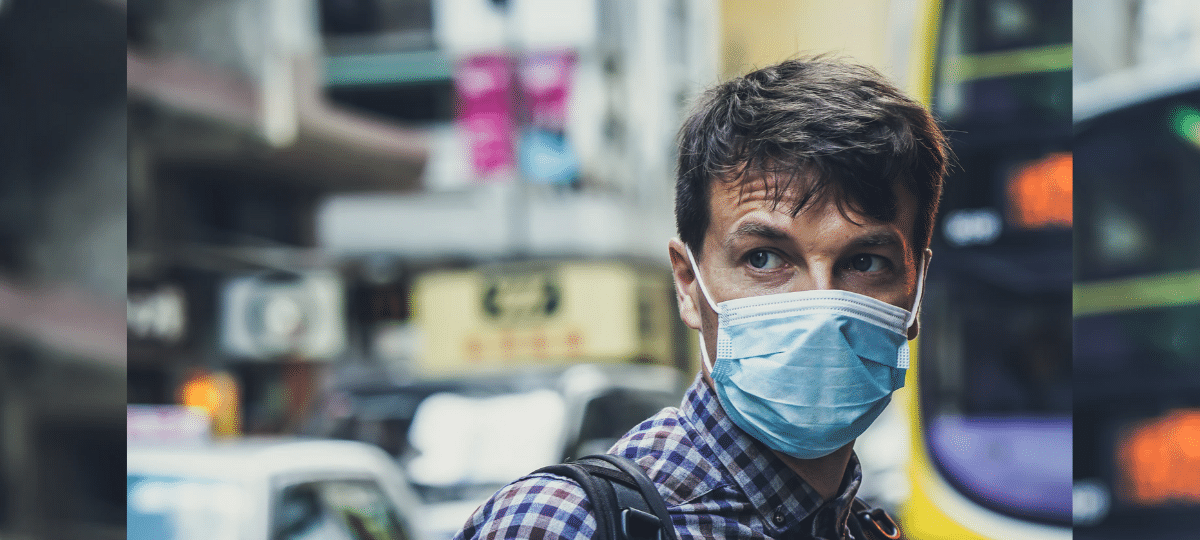The governing class’s response to coronavirus is well-intentioned, but they are failing to account for the harm done—both immediate and potential—by shutting down aspects of American society.
I appreciate the pressure public officials are under during this crisis. However, I fear we are moving too far in the direction of central planning to carry out containment and mitigation, which could result in more people losing their lives during and after the pandemic passes.
To understand why, it’s instructive to lay out several scenarios in which government efforts could backfire.
Supply chain issues
The economy’s supply chain is so complex, it is impossible for government to accurately determine how a shutdown will affect the fight against the virus. To sketch out one possibility, imagine government shutting down a business that disrupts the manufacturing of N-95 masks. I can’t provide particulars as to how this might occur, but that’s my point. The economy’s interconnectedness is far beyond our comprehension, we can’t anticipate the infinite combination of problems that could lead to a shortage of life-saving resources.
Deaths of despair
Putting people out work has its own costs. Many debating when to return to “normal” are painting this as issue of economic growth or earning more money vs. saving lives. That’s the wrong framework. What we should be debating is whether rebooting the economy, with the proper safety precautions, will save more lives than a blanket shutdown.
For instance, it’s generally acknowledged that suicides rise during periods of economic turmoil, and though suicides likely wouldn’t rise higher than deaths caused by failing to adequately address the pandemic, this is a problem we all need to be mindful of as long as the shutdown lasts. Whether they own up to it or not, officials are making tradeoffs—with life and death implications—in keeping parts of the economy closed.
Government efforts to encourage social distancing may also have unintended consequences. Distancing efforts can easily turn into social isolation, causing negative effects on people dealing with mental health challenges, and those who need in-person interactions to keep them healthy.
Again, it’s difficult to determine the effect social isolation and anxiety-inducing information surrounding the virus will have on the tens of millions of Americans with mental health challenges, but it’s reasonable to assume such isolation is not a viable long-term strategy.
Interactional risks
With the closure of some of society’s most important institutions (schools, universities, businesses, etc.), people are now living together for longer periods of time. This has its own risks. First, more interactions among family members increases the risks of domestic violence, as it gives abusers more opportunities to inflict violence on vulnerable family members.
Another possible problem is that shutdown orders may have sent infected people back home to elderly or immunocompromised family members. New York’s Governor, Andrew Cuomo, admitted as much during a press conference about the state’s response to the coronavirus. In shutting down universities, officials could have sent home its students not knowing they were unintentionally spreading the virus to other parts of the country.
Government’s damaging policy response
This may seem abstract, but another important consideration is how the government’s response will affect economic freedom over the long haul. Unfortunately, with the $2.3 trillion boondoogle Congress recently passed, we are not off to a good start. This historic (and bad) new law is unlikely to be the last intervention into the marketplace. Depending on how things play out, we could see larger relief or stimulus packages—and Federal Reserve interventions—that make the policy responses to the 2008 recession look reasonable.
The result may be a permanent ratcheting up of government power which will reduce economic freedom, leading to more human suffering and even premature death. If this sounds like an exaggeration, look at the evidence on economic freedom’s impact on life expectancy. People in freer countries live longer. Plus, wealth equips countries to more effectively fight future pandemics, saving more lives in the process.
At this moment, we are operating on very little information about coronavirus, but if the governing class is serious about maximizing the number of lives saved, it needs to take into account the many unintended consequences of quarantines and shutdowns—and provide Americans with a path to restarting life.
How the Coronavirus Will Permanently Change Government
Coronavirus Relief Bill: Pelosi’s Identity Politics Pork Barrel





2 comments
… [Trackback]
[…] Read More Information here to that Topic: thelibertarianrepublic.com/the-unintended-consequences-of-the-coronavirus-response/ […]
… [Trackback]
[…] Information on that Topic: thelibertarianrepublic.com/the-unintended-consequences-of-the-coronavirus-response/ […]